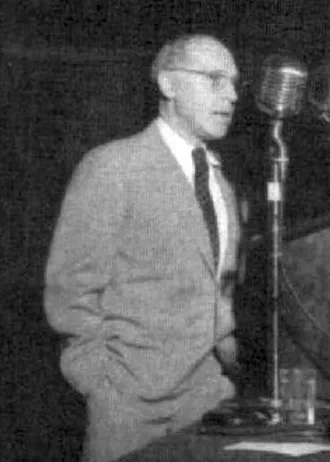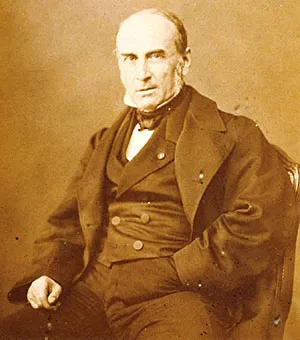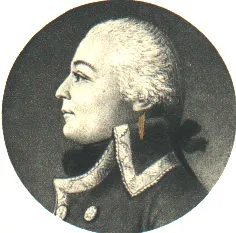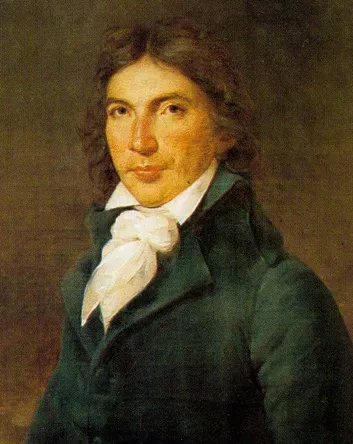
Full Name: Hermann Joseph Muller
Nationality: American
Profession: Geneticist and academic
Nobel Prize: Laureate
Birth Year: 1890
Death Year: 1967
The Legacy of Hermann Joseph Muller: A Glimpse into His Life and Impact
As the sun set on April 5, 1967, the world bid farewell to one of its most brilliant scientific minds Hermann Joseph Muller. Born in 1890, Muller’s journey was anything but ordinary; it was a life intricately woven with discoveries that changed our understanding of genetics forever.
Muller’s early years were characterized by an insatiable curiosity and a penchant for exploration. Growing up in New York City, he found himself captivated by the intricacies of biology and chemistry. However, his path wasn't solely illuminated by books; it was shaped by profound experiences that would later fuel his groundbreaking work. In his youth, he dabbled in various scientific disciplines before settling into the alluring world of genetics.
It wasn’t until he stepped onto the campus of Columbia University that Muller's destiny began to crystallize. Here, under the mentorship of notable figures like Thomas Hunt Morgan himself a Nobel laureate Muller’s fascination with fruit flies became apparent. These tiny creatures would serve as vessels for some of his most significant findings.
In 1927, a pivotal moment arrived when Muller published a paper revealing how X-rays could induce mutations in these fruit flies. This discovery sent shockwaves through the scientific community; it suggested that radiation could alter genetic structures a notion that challenged existing beliefs about heredity and evolution. Ironically, while many viewed radiation primarily as a destructive force during this era marked by nuclear experimentation and war, Muller illuminated its potential role in shaping life itself.
A Nobel Prize Amidst Controversy
As Muller's reputation soared following this discovery, so did scrutiny surrounding his work scientists were intrigued yet cautious about embracing such radical ideas. Yet despite any doubts cast upon him, Muller's tireless dedication to research earned him recognition beyond borders; by 1946, he had secured the Nobel Prize in Physiology or Medicine for his pioneering studies on mutations.
However, accolades didn’t insulate him from controversies brewing within society at large. Following World War II a time when fears surrounding nuclear energy escalated the implications of Muller's research took on new dimensions. Some claimed that understanding mutation mechanisms might give rise to bioethical dilemmas concerning eugenics and genetic engineering practices... Perhaps they feared an exploitation akin to what had transpired during wartime regimes!
The Academic Journey
Muller’s career continued to flourish even as debates raged around ethical boundaries within genetics research! He took on various teaching positions at esteemed institutions like Indiana University where he championed comprehensive biology education while advocating against nuclear warfare a cause close to his heart given its potential ramifications for future generations.
Pioneering Ideas
This dual focus reflected not only an intellectual commitment but also moral responsibility; who knows how many young scientists found inspiration under his guidance? Muller's students often recall passionate discussions about integrating social consciousness into their scientific endeavors!
A Visionary Advocate
Despite facing immense challenges during McCarthyism a period rife with suspicion regarding political affiliations Muller remained steadfastly vocal against anti-intellectual sentiments infiltrating academia... He penned numerous letters advocating for academic freedom and stressed science's role as a tool for social progress!
In hindsight, perhaps we can view these efforts through modern lenses! As issues concerning climate change or misinformation proliferate today one cannot help but draw parallels between past struggles faced by advocates like Muller advocating not just science but ethical responsibility too!
An Enduring Legacy
Muller's impact transcended individual achievements; he catalyzed wider discussions around genetics' influence over society's fabric itself! By fostering interdisciplinary collaboration amongst biologists to philosophers engaged grappling with questions stemming from genomic advancements it paved pathways towards innovative ideas still thriving today.
The final chapter unfolded in May 1967 when Hermann Joseph Muller passed away after battling health complications associated with old age but even now decades later echoes resonate throughout laboratories across America ! His legacy lives on through ongoing exploration into gene-editing technologies such as CRISPR! Can we imagine what insights await us next?
Modern Connections: The Relevance Today
Tales emerge regularly about scientists pushing boundaries reminiscent of Muller's spirit from researchers delving deep into human genome mapping initiatives or aspiring entrepreneurs launching biotech startups aimed towards revolutionary medical treatments all embodying fragments from this extraordinary narrative built upon relentless curiosity & courage despite societal constraints!
A Reflection Through Time
Muller exemplified how one individual's commitment could inspire countless others while illuminating pathways forward even amidst turmoil & doubt! Thus perhaps...the lessons gleaned resonate far beyond any singular achievement the true power lies not solely within accolades amassed but rather forging connections bridging science-humanity together toward shared futures unexplored yet intertwined eternally…









